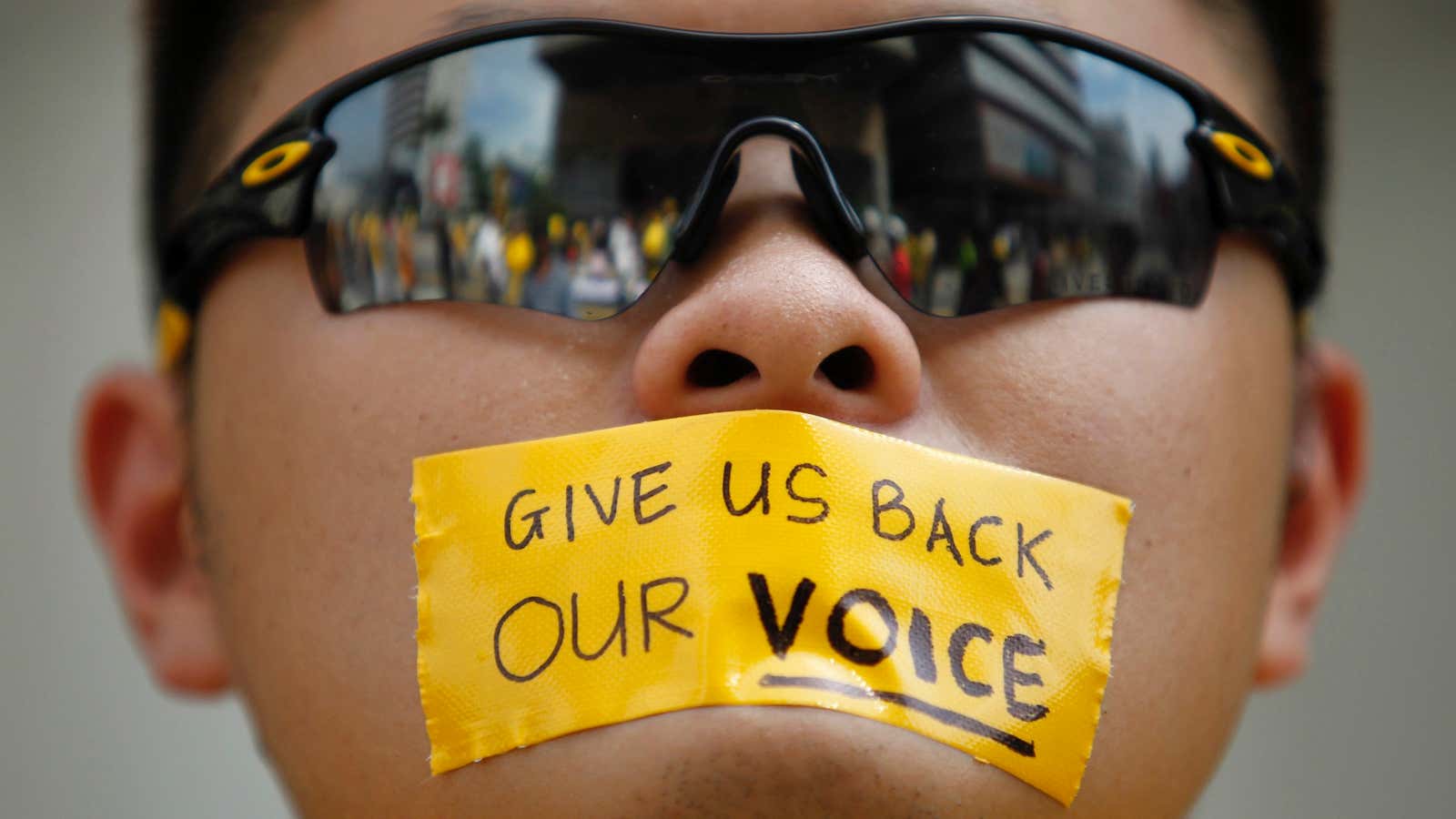Rallies calling for political reform in Malaysia will proceed this coming weekend (Aug. 29-30). Never mind that the main demonstration in Kuala Lumpur has been declared illegal by authorities.
Malaysia is faltering under financial and political stresses, with the currency in free-fall, foreign investors pulling out of the stock market, and the administration of prime minister Najib Razak—facing accusations of massive graft—promptly silencing critics.
Called Bersih 4, the yellow-shirted rallies will be held in cities in Malaysia and across the globe, including New York, Melbourne, and London. They call for clean elections, clean government, the right to dissent, a strengthened parliament, and the rescue of Malaysia’s faltering economy.
The word bersih means “clean” in Malay. Global Bersih, the organization behind the rallies, is registered as a nonprofit in Geneva. According to its website, almost a hundred Malaysian NGOs are endorsers.
Bersih rallies have been held in previous years, and they’ve involved arrests and intimidation, so the organizers have some experience under their belts. On Twitter, they’re using hashtags including #Bersih4, sharing advice such as what to do in the case of arrest:
Another tweet encouraged more cities to hold solidarity rallies:
One post of guidelines suggested ways to deal with tear gas this weekend, such as donning a mask, using small packets of salt to counteract the chemicals, and wearing glasses instead of contact lenses to prevent eye infections.
The protesters also face legal uncertainty, noted Andrew Khoo, co-chair of the Malaysia Bar Council’s human rights committee, to the Straits Times. Under a new section of the nation’s penal code—not in force at the time of the last Bersih rally in 2012—attending a rally “could be deemed an activity detrimental to parliamentary democracy,” he said.
For obvious reasons, many Malaysian authorities dislike the Bersih rallies. But so do others, apparently. On Aug. 25 an anti-Bersih, pro-government group of about 150 prepared for a counter-rally on the weekend. Though the red-shirted participants professed non-violent intentions, their “practice session” included beating each other with sticks.




